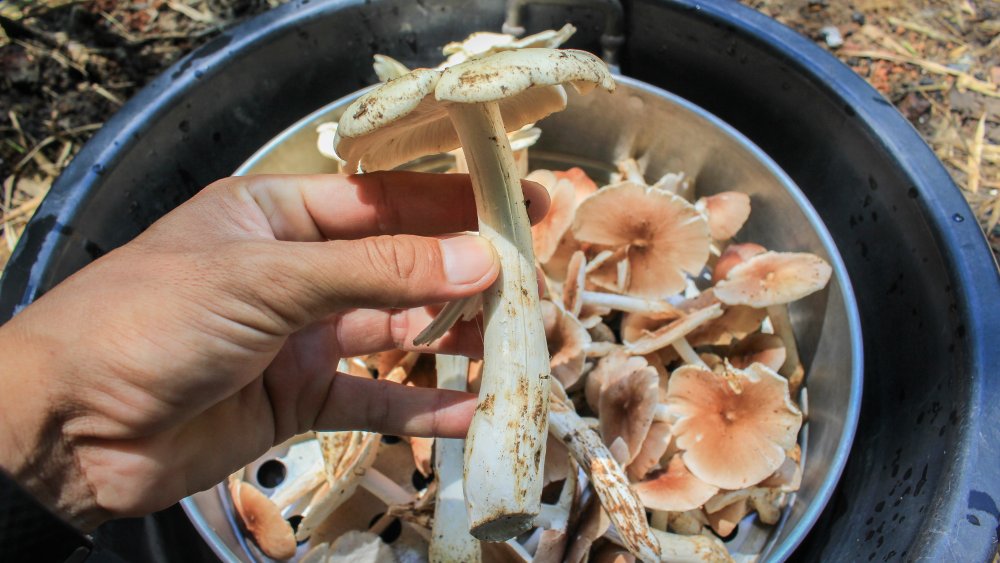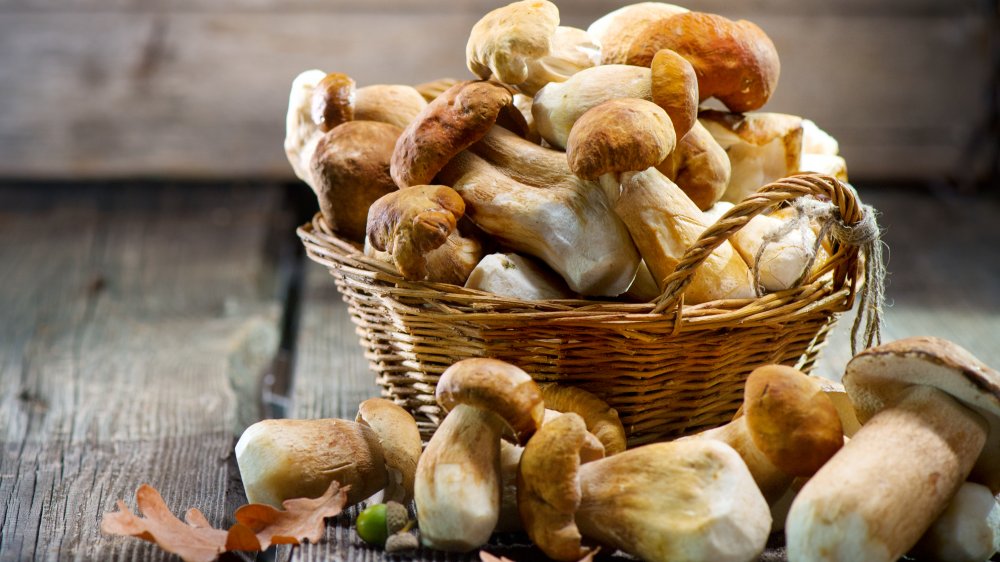What You Should Know About Eating Raw Mushrooms
Mushrooms are a staple in many homes for their unbeatable flavors and the fact they can be effortlessly incorporated in many cuisines. According to Healthline, it would be correct to classify mushrooms as fungi, technically, but they're usually referred to as healthy vegetables that can bring a little variety to your diet. Of course, it's a good idea to get them from your local supermarket and experiment with the different types of mushrooms you'd like to cook with.
Whether you're a fan of sprinkling mushrooms with other veggies on your homemade pizza or like sautéing them for breakfast with fresh toast, there are several methods you can use to cook mushrooms just the way you like them. With spices, a bit of gravy, or perhaps even with a serving of melted cheese? But as appealing as mushrooms are when added to iconic dishes, eating them raw could be rather dangerous for you. This is why.
They contain a compound that could harm you
The problem with eating mushrooms raw is you may be unwittingly sabotaging your health. As per the Alliance for Natural Health, it's a good idea to always cook mushrooms because they contain trace amounts of a compound called agaritine. Studies have indicated that agaritine may have carcinogenic effects. Some research studies have, however, found that there are no side effects. This is disputed, but cooking the mushrooms does ensure that you'll be reducing or eliminating any potential effects that may occur otherwise. Plus, as explained by CNN, most vegetables are better for you when cooked. The whole process essentially helps get rid of tough layers and outer structures of several vegetables, allowing you to reap their benefits more easily nutrition-wise.
Plus, cooking mushrooms is a versatile activity and isn't complicated at all. Master chef Jamie Oliver suggests frying mushrooms before adding them to pasta or experimenting and roasting the veggies with a bit of garlic and parsley for a delicious entree. They work well with several options, adds Oliver, and can be used well in sauces, risottos, pies, stir-fried dishes, and more.

